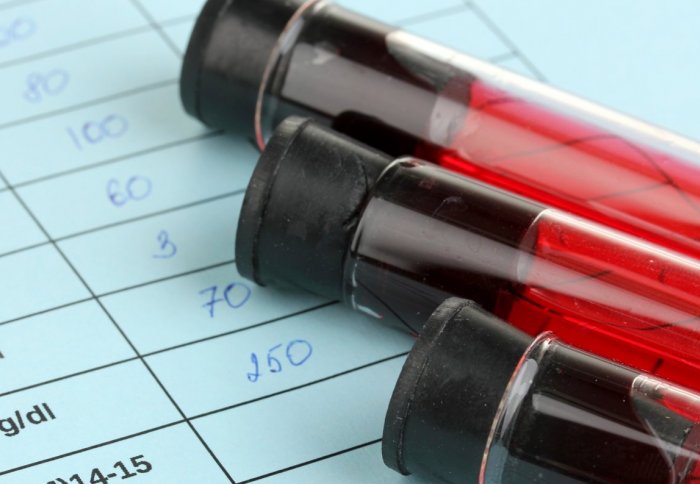Pioneering blood test to detect cancer developed by Imperial researcher

A blood test developed by an Imperial researcher could revolutionise the way cancer is diagnosed in future, according to a new study.
A simple, inexpensive blood test that is available to GPs who suspect a patient may have cancer, would result in significant savings to the NHS and could dramatically improve outcomes for patients.
– Eric Lim
National Heart & Lung Institute
The simple test, which researchers say could eventually be carried out in a GP’s surgery, has the potential to save many lives every year, by providing a rapid diagnosis (within days) and increasing the likelihood of earlier treatment for thousands of patients with cancer.
The study, which was carried out at Royal Brompton Hospital and the National Heart and Lung Institute at Imperial College London, focused on blood tests from 223 patients before surgery for known, or suspected, lung cancer.
The research team was not told whether patients had a definitive diagnosis or not at the beginning of the study. However, researchers were able to use the innovative blood test to correctly identify cancer-specific gene mutations in the DNA of nearly seven out of ten patients who were subsequently confirmed to have cancer by standard pathology methods.
The findings show that many patients could be saved the time and experience of undergoing an invasive biopsy to diagnose their cancer.
Biopsies, or tissue samples, are often taken with a needle during a CT scan, through a bronchoscopy (when a thin, flexible fibre-optic tube is inserted into the lungs via the nose or mouth) or during a surgical procedure. Despite currently being regarded as the gold standard of diagnosis, the procedure involves longer waiting times, costs thousands of pounds and can result in complications for a small number of patients.
The researchers suggest that the new blood test, which would cost the NHS just a few hundred pounds, could be a non-invasive but still accurate diagnostic method for a large number of patients with suspected cancer.
For the purposes of the study, researchers concentrated only on patients with primary or secondary lung cancer. They found the same gene patterns are common to patients with other forms of cancer, such as colorectal cancer, which indicates that the blood test could be useful in suggesting the presence of other cancers.
When any type of cell, including a cancer cell, dies, its DNA is released into the bloodstream. The research team identified specific parts of the DNA in the blood that had mutated due to cancer. DNA was extracted from the plasma (the fluid part of the blood) and analysed to identify three common gene mutations. Cancerous tissue was also analysed for these genetic abnormalities to see how closely it corresponded to the blood sample. These cancer-specific gene mutations are not usually found in the blood of healthy individuals.
The findings were presented today at the annual World Conference on Lung Cancer in Colorado, USA, by Mr Eric Lim, from the National Heart & Lung Institute at Imperial and a consultant thoracic surgeon at Royal Brompton & Harefield NHS Foundation Trust.
Mr Lim, who led the trial, said: “We hope this study will be a real game changer that could ultimately lead to many more lives being saved through earlier diagnosis and treatment for all types of cancer.
“A simple, inexpensive blood test that is available to GPs who suspect a patient may have cancer, would result in significant savings to the NHS and could dramatically improve outcomes for patients.
“The test is not an alternative to a biopsy for all patients, but when a blood test shows a positive result, this could mean a patient is saved from going through an unnecessary and invasive diagnostic procedure. It might also result in patients having earlier imaging scans and beginning treatment sooner.
“However, it is important for patients to continue to have access to conventional diagnostic methods, especially if the blood test has a negative result as this does not completely rule out the presence of cancer cells.
“Developing a blood test that is suitable for use in a clinical setting is the culmination of more than four years of work at Royal Brompton Hospital. Whilst we are immensely excited about the potential this test has for improving patient care, more research, on a wider scale, is needed to validate our initial findings before it could be used in a clinical setting. We hope that further research will also make the blood test even more effective as a diagnostic tool.”
Article text (excluding photos or graphics) © Imperial College London.
Photos and graphics subject to third party copyright used with permission or © Imperial College London.
Reporter
Laura Gallagher
Communications Division